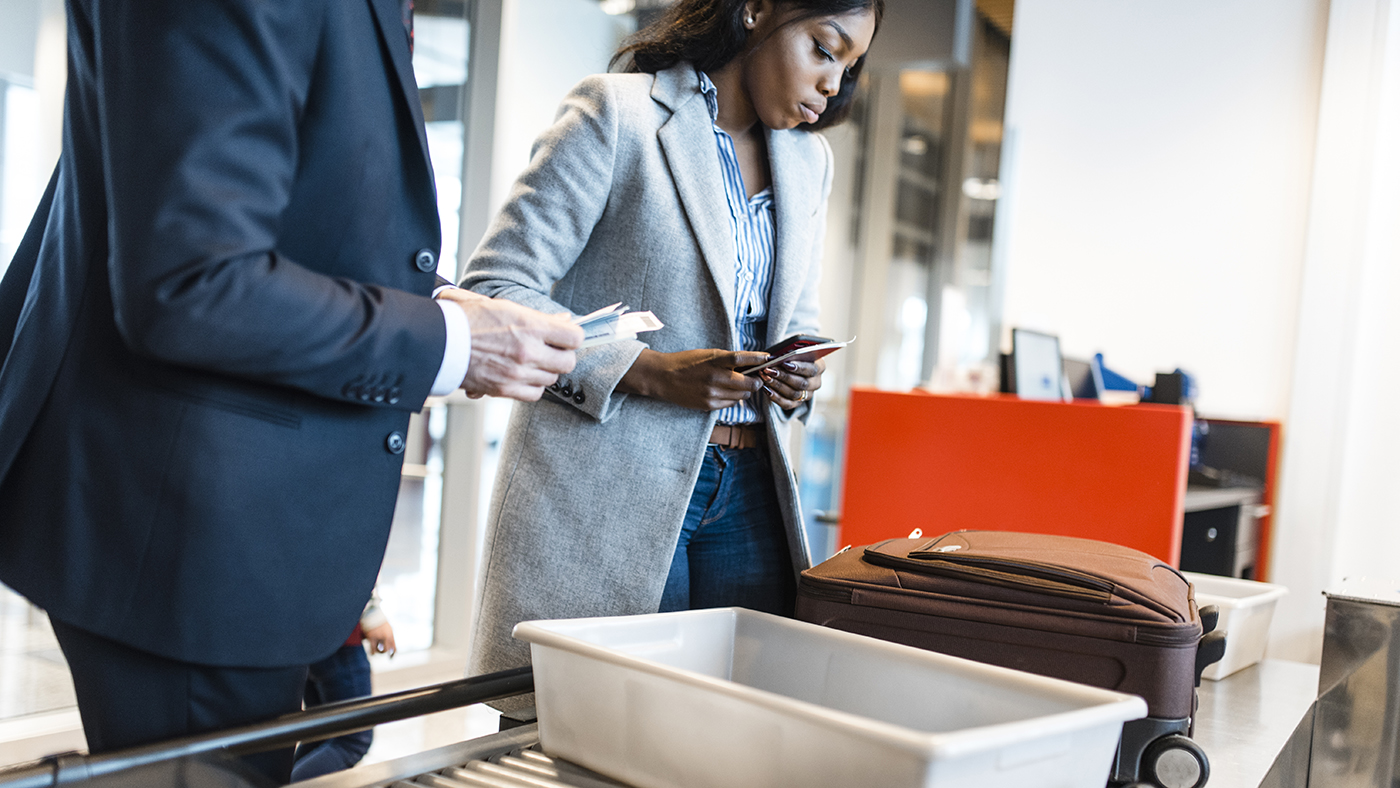8 Ways to Help Prevent Identity Theft While Traveling
Take these steps to feel more secure away from home.
 iStock
iStock
Identity fraud is impacting a record number of people. And if you’re traveling, the chances of fraud are even higher. That’s because thieves can easily identify, target and exploit you when you’re less familiar with your surroundings and have your personal documents in tow.
Follow these tips to help prevent identity theft while traveling, so you can leave—and return—home with peace of mind:
1. Bring only necessary documents
Before you travel, it’s wise to lighten your wallet or purse as much as possible, keeping in mind that the more you bring, the more a thief stands to learn about you. Any personal or financial documents that aren’t relevant to your trip should be stored securely at home or in a safe deposit box.
For example, adults traveling internationally can leave Social Security cards and birth certificates at home and use passports instead.
2. Avoid giving out your location on social media
Be careful with the vacation information you post on social media, including before and during your trip. Posting a cute photo of your boarding pass or passport, for example, could accidentally reveal enough information for a thief to steal your identity. Same goes for geotagging a photo with your specific hotel. It’s best to wait until you’re back home to share your trip on social media.
3. Be careful using Bluetooth technology in a rental car
Connecting your phone to a rental car via Bluetooth adds convenience while traveling, but it also can leave you vulnerable. The next person who uses the car may be able to access information about you, such as text messages, contacts and music streaming log-ins. Talk to your rental car company about their privacy policies. If you do connect, to help prevent identity theft, be sure to disconnect your synced phones and delete any relevant data before returning your rental car.
4. Be wary of scams
Sure, the internet is filled with threats to your identity—but traditional scam artists are still prevalent and continue to devise new ways to separate you from your money and personal information. As a rule, be skeptical whenever your information is requested while you travel. For example, if you receive a call from someone claiming to represent your hotel, be careful not to give away your information until you’ve confirmed the caller’s story and identification. The easiest way to do this is to hang up and call or go to the front desk to confirm directly.
Other tactics, such as card skimmers built into ATMs, can present risks to your identity. To reduce your risk, stick to ATMs located in banks, restaurants or other high-traffic areas, as they are less likely to be compromised.
5. Let your bank know where you’re traveling
If your bank or credit card company sees transactions in an unexpected location, it may assume your card is being used fraudulently and freeze access to your account. Each bank has different options, but many offer secure forms online or through their app to notify them of travel.
6. Be careful with your devices and internet use
Cell phones and laptops are brimming with personal information. To help prevent identity theft while traveling, set a strong password for your phone and avoid logging into bank accounts, work email or other sensitive accounts while on public Wi-Fi.
If you absolutely must use accounts or apps that interact with your sensitive information (such as banking apps), log out immediately when you are done. Many keep you logged in while you’re not using them, rendering you vulnerable if a third party is eavesdropping.
7. Invest in a Virtual Private Network
Traveling means being away from your home Wi-Fi and possibly a reliable data connection. When using public Wi-Fi, it’s best to add a level of security with a Virtual Private Network (VPN). A VPN is a service you can buy that offers secure access to the internet—it encrypts your online data to help prevent anyone from stealing your communication over Wi-Fi.
“It’s very difficult for somebody to snoop in and listen to what you’re typing if you’re on [a] VPN,” says Gopal Padinjaruveetil, Chief Information Security Officer for AAA.
8. Follow up at home
Your risk for identity theft doesn’t end when you return home, so remain vigilant in the weeks after your trip. Check your bank and credit card activity once you return to ensure you don’t have any suspicious charges. Many identity thieves are patient and know how to spend your money in a way that creates a slow, subtle trail that can be difficult to detect. Identity theft monitoring programs can help you keep an eye out for any fraudulent activity occurring on your accounts.